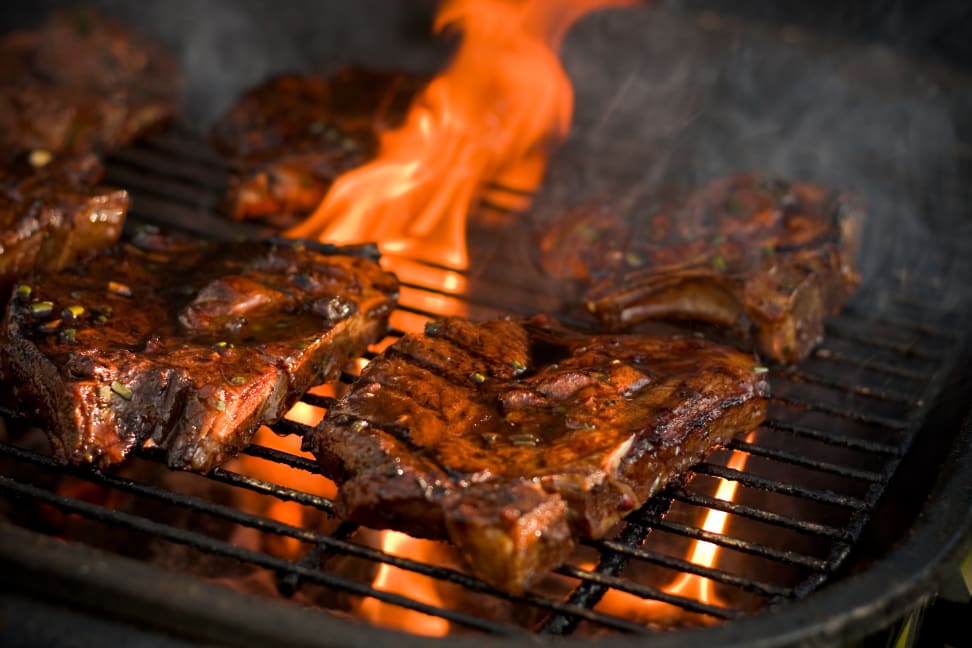Study Links Grilled Meat to Kidney Cancer
Our love of flame-kissed meats could be killing us.
 Credit:
Flickr user "combust"
Credit:
Flickr user "combust"
Products are chosen independently by our editors. Purchases made through our links may earn us a commission.
Why is it that all the foods we love are out to kill us? A new study in the journal Cancer has linked some of the most popular cooking techniques for meat—including grilling and barbecuing—to a form of kidney cancer.
According to a press release, renal cell carcinoma (a common form of kidney cancer) has been linked to high-meat diets, with the cooking method used also influencing risk. In addition, these potentially cancer-causing cooking methods led to higher risk among people with "variations" in a specific gene.
{{amazon name="Cuisinart CGS-5014 14-Piece Deluxe Stainless-Steel Grill Set", asin="B002XQ2D8Q", align="right"}} Researchers at the University of Texas M.D. Anderson Cancer Center came to these conclusions by surveying 659 kidney cancer patients and 699 "healthy subjects" to understand how their eating habits and genetics could affect cancer risk.
The study specifically calls out grilling, barbecuing, pan-frying, and cooking over an open flame as cooking methods that can elevate cancer risk.
The reason is simple: Cooking at super-high temperatures chars meat, creating carcinogens that make their way to the kidneys when consumed.
Red and white meat were both found to increase risk, so swearing off beef alone won't necessarily help your chances. However, the researchers suggest it's fine to eat meat in moderation, so long as it isn't charred.
Given the broad scope of these claims and the relatively small sample size for the study, it would be wise to take these findings with a grain of salt. Even the researchers admit that more work needs to be done to properly understand the relationship between genetic susceptibility and carcinogens.
Related Video
{{brightcove '4220389969001'}}


